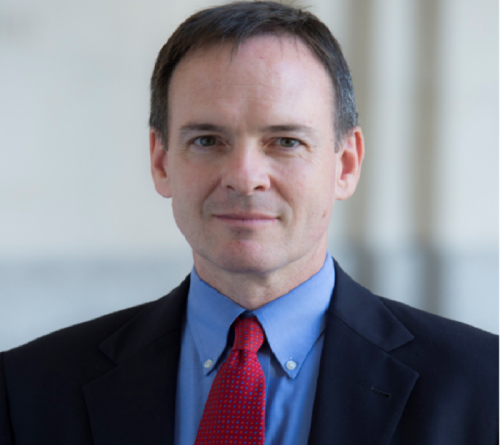Robert Daly Discusses Deteriorating U.S.-China Relations
Joshua Powanda
Staff Writer
On October 19, Robert Daly, Director of the Wilson Center’s Kissinger Institute on China and the United States virtually spoke to a group of students and faculty on the current nature of relations between the two superpowers. Daly has an impressive and accomplished background, having testified before Congress, served as a U.S. diplomat at the U.S. Embassy in Beijing, interpreted for both Chinese and U.S. leaders, and held the position of department head at several accredited universities. His lecture focused on the ever-growing differences between the American and Chinese governments regarding issues both sides deem significant to their national interest.
Daly portrayed Sino-U.S. relations in a pessimistic light, citing many unfolding events, such as tensions in the South China Sea, recent bans on technology, and the aggressive nature of the Chinese Communist Party (CCP).
However, Daly explained that the narrative and perception of the relationship was never as counterproductive and negative as it is today. The United States and China, at one point, shared a positive perception of one another, especially during the rise of China. The narrative used to be that this rise was beneficial for the advancement of human welfare and the development of the standard of living in China. This ideology was demonstrated by the hundreds of millions of citizens who were lifted from poverty as a result of Chinese integration into the international community.
Daly continued the discussion with an explanation of how relations between the two countries began to deteriorate and for what reasons. He emphasized that the positive narrative was gradually altered during the 1990s and continued to change throughout the 21st century. During this period, the United States began to see China and the CCP as a threat and competitor. Similarly, China’s aims have always been clear: “comprehensive national power,” as Daly put it. This includes a new world order, where China would acquire American-level status and power, thus making them the sole hegemony. The Chinese government hopes to achieve these aims through increased military, economic, and political power.
Daly underscored the Chinese system of governance and society as a “hegemonic, consumerist, police state.” With this description, Daly was highlighting the many aspects of the Chinese system both internally and externally, including its desire to become a global leader, economic prosperity, and the repressive and invasive nature of China’s internal security.
Expanding upon this, Daly went on to detail how China has been forming into an ever-growing police state, with the implementation of facial recognition software in many of its urban areas. Despite this invasion of privacy, Daly described the Chinese economic system as vibrant and open to consumerism and prosperity. Through a desire to acquire wealth, and the continuation of innovation and technology, China’s economy has flourished because of a growing middle class.
Much of the economic success China has enjoyed is due to its international business dealings and the dependence other nations have on the state. Not only is China the world’s largest trading partner but they are also leveraging wealth through loans. Daly explained that by increasing the dependence other states have on China, economic power is given to the Chinese government. As an example of this, he highlighted the Belt and Road Initiative, a multi-billion-dollar infrastructure development project. China is using its economic might to leverage other states into increasing their dependence, thus empowering the Chinese government.
As a result of the threat that China poses to the U.S., and the competition that ensues, many scholars have argued that both countries are heading into a Cold War in the 21st Century. While Daly does not see a Cold War in terms of the relationship between the USSR and the U.S., he does agree that the mutual hostilities and rise of tensions represent a new kind of conflict, similar to the Cold War.
Because both sides resort to putting the blame on the other, each state feels justified in their actions. Daly explained that while it is clear the American government activated the current trade war through its imposition of tariffs on Chinese goods, the previous decades have shown the Chinese government to reject international norms and fail to have open and reciprocal trade.
Speaking on the overall issue and how relations should further be handled, Daly expressed that both the United States and China must learn to approach the ever-deteriorating relationship diplomatically and cautiously and promote a short-term goal of stabilization. Daly concluded by saying that while stabilizing the relationship is not a long-term strategy, the primary goal should be to come together and halt the rapid decline of superpower relations we see in today’s international system.


